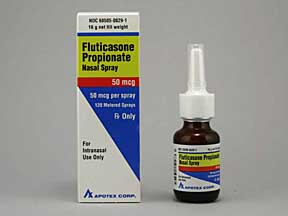
Fluticasone Coupons & Savings Card – Discount Prices from $8.27
Generic for: Cutivate, Flonase allergy relief, Cvs fluticasone propionate
My prescription
Edit
16GM of 50MCG/ACT, Fluticasone (1 Bottle)
Select pharmacy

CVS
$21.35
COUPON PRICE
Walmart
$8.27
COUPON PRICE
Walgreens
$15.99
COUPON PRICE
Albertsons
$18.40
COUPON PRICEFluticasone savings card
Show this card to your pharmacist
Walmart
$8.27
BIN
ID
PCN
GRP
019876
LH0363FC67
CHIPPO
LHX
Powered by
More prescriptions for skin allergy
More prescriptions for skin allergy
Price history for Flonase Allergy Relief (brand) & Fluticasone (generic)
1 Bottle, 11.1ML of 50MCG/ACT
Average retail price for Flonase Allergy Relief
Average retail price for Fluticasone
Average SaveHealth price for Fluticasone
Our price history data is based on aggregated prescription data collected from participating pharmacies in America. Our prescription data updates daily to reflect the latest price changes. If you notice a missing data point, it means there wasn't sufficient data available to generate a monetary value for that date.
We analyzed Fluticasone prices for (11.1ML of 50MCG/ACT, 1 Bottle) over the last 12 months. The average retail price was $41.73, while the average price using the SaveHealth discount card was $14.71. That's a savings of approximately 64.75% when using our Fluticasone coupon.
Compared to the generic version, Flonase Allergy Relief had an average price of $19.61 over the same time period. With the SaveHealth savings card, Fluticasone is 24.99% cheaper on average than Flonase Allergy Relief.
*Retail prices are based on pharmacy claims data, and may not be accurate when we don't have enough claims.
Fluticasone dosage forms
Dosage Quantity Price from Per unit 0.1GM 1 Bottle $283.76 $283.76 0.1GM 2 Bottles $586.51 $293.25 0.1GM 3 Bottles $879.30 $293.10 11.1ML of 50MCG/ACT 1 Bottle $6.50 $6.50 11.1ML of 50MCG/ACT 2 Bottles $17.00 $8.50 11.1ML of 50MCG/ACT 3 Bottles $29.82 $9.94 120ML of 0.05% 1 Bottle $147.88 $147.88 120ML of 0.05% 2 Bottles $288.26 $144.13 120ML of 0.05% 3 Bottles $428.65 $142.88
| Dosage | Quantity | Price from | Per unit |
|---|---|---|---|
| 0.1GM | 1 Bottle | $283.76 | $283.76 |
| 0.1GM | 2 Bottles | $586.51 | $293.25 |
| 0.1GM | 3 Bottles | $879.30 | $293.10 |
| 11.1ML of 50MCG/ACT | 1 Bottle | $6.50 | $6.50 |
| 11.1ML of 50MCG/ACT | 2 Bottles | $17.00 | $8.50 |
| 11.1ML of 50MCG/ACT | 3 Bottles | $29.82 | $9.94 |
| 120ML of 0.05% | 1 Bottle | $147.88 | $147.88 |
| 120ML of 0.05% | 2 Bottles | $288.26 | $144.13 |
| 120ML of 0.05% | 3 Bottles | $428.65 | $142.88 |
